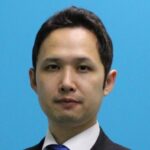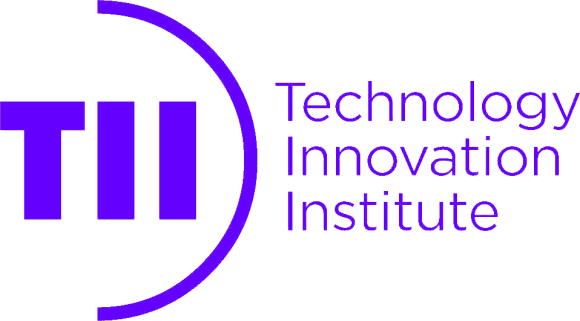List of Invited Talks
Invited Talk 01 : IT01 5G Advanced and Road Toward 6G
Invited Talk 02: IT02 Technologies Making 6G A Reality
Schedule
Invited talks will be held during the conference program, in parallel to other technical sessions, i.e., on Sep. 6th and Sep. 7th, 2023.
IT01: 5G Advanced and Road Toward 6G
Date: Wednesday 06 September
Time: 16:00 – 17:30
Location: Metropolitan Centre
Invited Speakers:
Wanshi Chen, Qualcomm, US
Satoshi Nagata, NTT DOCOMO, Japan
Eric Dahlman, Ericsson, Sweden
Speaker Bios:
 Wanshi Chen is currently 3GPP TSG RAN Plenary Chair appointed in April 2021. From August 2017 to May 2021, he was 3GPP TSG RAN1 Chair, where under this position, he has successfully managed and led successful delivery of the first and the second 5G New Radio (NR) releases. He was a RAN1 vice chair from August 2013 to August 2017. Wanshi has over 20 years of experiences in telecommunications in leading telecom companies including operators, infrastructure vendors, and chipset vendors. He has been with Qualcomm since 2006. The highest degree that Wanshi has received is a Ph.D. degree in electrical engineering from the University of Southern California, Los Angeles, CA, USA. Wanshi is an avid Marathon runner with a personal best time of 2 hours and 54 minutes.
Wanshi Chen is currently 3GPP TSG RAN Plenary Chair appointed in April 2021. From August 2017 to May 2021, he was 3GPP TSG RAN1 Chair, where under this position, he has successfully managed and led successful delivery of the first and the second 5G New Radio (NR) releases. He was a RAN1 vice chair from August 2013 to August 2017. Wanshi has over 20 years of experiences in telecommunications in leading telecom companies including operators, infrastructure vendors, and chipset vendors. He has been with Qualcomm since 2006. The highest degree that Wanshi has received is a Ph.D. degree in electrical engineering from the University of Southern California, Los Angeles, CA, USA. Wanshi is an avid Marathon runner with a personal best time of 2 hours and 54 minutes.
Title: 3GPP: 5G-Advanced and Beyond
Abstract: Since early 2022, 5G in 3GPP has entered the second phase of standardization, also known as 5G-Advanced. As the first release of 5G-Advanced, Release 18 in 3GPP has been progressing well despite the challenges due to COVID-19. In this talk, we will provide a high-level summary of 3GPP Release 18 from the radio access network (RAN) perspective: the set of the RAN projects, its timeline, and the current status. We will also give a brief introduction of how 5G will evolve in the next several years. We will provide a summary of the Release 19 workshop, successfully arranged in June 2023. As a continuation of 5G-Advanced, Release 19 will primarily focus on continuing investing in 5G-Advanced commercial deployments to further improve performance and address critical needs. Release 19 is also a bridge to 6G, for which 3GPP is expected to develop an input to the IMT-2030 process in the future.
 Satoshi Nagata received his B.E. and M.E. degrees from Tokyo Institute of Technology, Tokyo, Japan, in 2001 and 2003, respectively. In 2003, he joined NTT DOCOMO, INC. He worked on the research and development for wireless access technologies for LTE, LTE-Advanced, and 5G. He had contributed to 3GPP over 15 years, and contributed 3GPP TSG-RAN WG1 as a vice chairman during November 2011 to August 2013, and contributed as a chairman during August 2013 to August 2017. He had also contributed 3GPP TSG-RAN as a vice chairman during March 2017 to March 2021, and currently a vice chairman of 3GPP TSG-SA since March 2021.
Satoshi Nagata received his B.E. and M.E. degrees from Tokyo Institute of Technology, Tokyo, Japan, in 2001 and 2003, respectively. In 2003, he joined NTT DOCOMO, INC. He worked on the research and development for wireless access technologies for LTE, LTE-Advanced, and 5G. He had contributed to 3GPP over 15 years, and contributed 3GPP TSG-RAN WG1 as a vice chairman during November 2011 to August 2013, and contributed as a chairman during August 2013 to August 2017. He had also contributed 3GPP TSG-RAN as a vice chairman during March 2017 to March 2021, and currently a vice chairman of 3GPP TSG-SA since March 2021.
Title: 5G/6G and NTT DOCOMO activity
Abstract: 5G is expected to provide new value as a basic technology supporting future industry and society, along with artificial intelligence (AI) and the Internet of Things (IoT), as well as further upgrading of the multimedia communication services with its technical features such as high speed, high capacity, low latency, and massive connectivity. In this presentation, we show the latest status of 5G standardization and also show NTT DOCOMO’s activity towards 5G and also 6G.
 Erik Dahlman joined Ericsson in 1993 and is currently a Senior Expert in radio access technologies within Ericsson Research. He has been involved in the development of wireless access technologies from early 3G, through 4G LTE, and mostly 5G NR. He is currently focusing on the evolution of 5G as well as technologies applicable beyond 5G wireless access. He is the co-author of the books 3G Evolution – HSPA and LTE for Mobile Broadband, 4G – LTE and LTE-Advanced for mobile broadband, 4G – LTE-Advanced Pro and the Road to 5G and, most recently, 5G NR – the Next Generation Wireless Access Technology. He has a PhD in telecommunication from the Royal Institute of Technology (KTH), Stockholm, Sweden
Erik Dahlman joined Ericsson in 1993 and is currently a Senior Expert in radio access technologies within Ericsson Research. He has been involved in the development of wireless access technologies from early 3G, through 4G LTE, and mostly 5G NR. He is currently focusing on the evolution of 5G as well as technologies applicable beyond 5G wireless access. He is the co-author of the books 3G Evolution – HSPA and LTE for Mobile Broadband, 4G – LTE and LTE-Advanced for mobile broadband, 4G – LTE-Advanced Pro and the Road to 5G and, most recently, 5G NR – the Next Generation Wireless Access Technology. He has a PhD in telecommunication from the Royal Institute of Technology (KTH), Stockholm, Sweden
Title: Future wireless access
Abstract: With the deployment of 5G systems now well underway all over the world, the focus is turning towards the development of future wireless-access technology, both the longer-term evolution of 5G, referred to as “5G Advanced”, and, further into the future, next-generation (6G) technology. In this talk we will provide an overview of the state of this technology evolution, in terms of anticipated driving use cases and corresponding required technology capabilities as well as key technology components that may be applied to enable these capabilities.
IT02: Technologies Making 6G A Reality
Date: Thursday 07 September
Time: 16:00 – 17:30
Location: Harbour B
Invited Speakers:
Slawomir Stanczak, Fraunhofer HHI and TU Berlin
Daniel B. da Costa, Technology Innovation Institute (TII)
Andreas Roessler, Rohde & Schwarz
 Slawomir Stanczak is Professor of Network Information Theory at the Technical University of Berlin and Head of the Wireless Communications and Networks Department at the Fraunhofer Heinrich Hertz Institute (HHI). Prof. Stanczak is co-author of two books and more than 200 peer-reviewed journal articles and conference papers in the field of information theory, wireless communications, signal processing, and machine learning. Prof. Stanczak received research grants from the German Research Foundation and the Best Paper Award from the German Society for Telecommunications in 2014. He was an associate editor of the IEEE Transactions on Signal Processing from 2012 to 2015 and chair of the ITU-T Focus Group on Machine Learning for Future Networks including 5G from 2017 to 2020. Since 2020 Prof. Stanczak is chairman of the 5G Berlin association and since 2021 he is coordinator of the projects 6G-RIC (Research & Innovation Cluster) and CampusOS.
Slawomir Stanczak is Professor of Network Information Theory at the Technical University of Berlin and Head of the Wireless Communications and Networks Department at the Fraunhofer Heinrich Hertz Institute (HHI). Prof. Stanczak is co-author of two books and more than 200 peer-reviewed journal articles and conference papers in the field of information theory, wireless communications, signal processing, and machine learning. Prof. Stanczak received research grants from the German Research Foundation and the Best Paper Award from the German Society for Telecommunications in 2014. He was an associate editor of the IEEE Transactions on Signal Processing from 2012 to 2015 and chair of the ITU-T Focus Group on Machine Learning for Future Networks including 5G from 2017 to 2020. Since 2020 Prof. Stanczak is chairman of the 5G Berlin association and since 2021 he is coordinator of the projects 6G-RIC (Research & Innovation Cluster) and CampusOS.
Title: A path to energy-efficient 6G networks: Exploring promising research directions
Abstract: The development of 6G networks requires careful consideration of several critical factors, including the predicted increase in data traffic, the seamless integration of sensing services with real-time analytics (Network as a Sensor), and the expansion of network densification while simultaneously maintaining sustainability goals. In this context, energy efficiency becomes a critical factor in the development of 6G technologies. In this talk, we will present promising research avenues that have great potential to significantly reduce energy consumption in 6G networks. We will focus on two research areas: cell-less massive MIMO networks in the context of sub-6GHz and sub-THz communications, and reconfigurable intelligent surfaces. Our discussion draws on the collaborative efforts of the 6G Research and Innovation Cluster (6G-RIC), which has launched an ambitious and comprehensive interdisciplinary research program to address the technical challenges associated with the development of 6G networks. By exploring these research directions, our goal is to foster advances that will lead to more energy-efficient and sustainable 6G technologies.
 Dr. Daniel B. da Costa was born in Fortaleza, Ceará, Brazil, in 1981. He received the B.Sc. degree in Telecommunications from the Military Institute of Engineering (IME), Rio de Janeiro, Brazil, in 2003, and the M.Sc. and Ph.D. degrees in Electrical Engineering, Area: Telecommunications, from the University of Campinas, SP, Brazil, in 2006 and 2008, respectively. His Ph.D thesis was awarded the Best Ph.D. Thesis in Electrical Engineering by the Brazilian Ministry of Education (CAPES) at the 2009 CAPES Thesis Contest. From 2008 to 2009, he was a Postdoctoral Research Fellow with INRS-EMT, University of Quebec, Montreal, QC, Canada. From 2010 to 2022, he was with the Federal University of Ceará. In 2019, Dr. da Costa was on sabbatical leave. From January 2019 to April 2019, he was Visiting Professor at Lappeenranta University of Technology (LUT), Finland, with financial support from Nokia Foundation. He was awarded the prestigious Nokia Visiting Professor Grant in 2018 and 2021. From May 2019 to August 2019, he was with King Abdullah University of Science and Technology (KAUST), Saudi Arabia, as a Visiting Faculty, and from September 2019 to November 2019, he was a Visiting Researcher at Istanbul Medipol University, Turkey. From 2021 to 2022, he was Full Professor at the National Yunlin University of Science and Technology (YunTech), Taiwan. He is currently a Principal Researcher at the Technology Innovation Institute (TII), a global research center and the applied pillar of Abu Dhabi’s Advanced Technology Research Council. He is also Editor-in-Chief of the IEEE Communications Letters and Specialty Chief Editor of the Frontiers in Communications and Networks – Wireless Communications Section.
Dr. Daniel B. da Costa was born in Fortaleza, Ceará, Brazil, in 1981. He received the B.Sc. degree in Telecommunications from the Military Institute of Engineering (IME), Rio de Janeiro, Brazil, in 2003, and the M.Sc. and Ph.D. degrees in Electrical Engineering, Area: Telecommunications, from the University of Campinas, SP, Brazil, in 2006 and 2008, respectively. His Ph.D thesis was awarded the Best Ph.D. Thesis in Electrical Engineering by the Brazilian Ministry of Education (CAPES) at the 2009 CAPES Thesis Contest. From 2008 to 2009, he was a Postdoctoral Research Fellow with INRS-EMT, University of Quebec, Montreal, QC, Canada. From 2010 to 2022, he was with the Federal University of Ceará. In 2019, Dr. da Costa was on sabbatical leave. From January 2019 to April 2019, he was Visiting Professor at Lappeenranta University of Technology (LUT), Finland, with financial support from Nokia Foundation. He was awarded the prestigious Nokia Visiting Professor Grant in 2018 and 2021. From May 2019 to August 2019, he was with King Abdullah University of Science and Technology (KAUST), Saudi Arabia, as a Visiting Faculty, and from September 2019 to November 2019, he was a Visiting Researcher at Istanbul Medipol University, Turkey. From 2021 to 2022, he was Full Professor at the National Yunlin University of Science and Technology (YunTech), Taiwan. He is currently a Principal Researcher at the Technology Innovation Institute (TII), a global research center and the applied pillar of Abu Dhabi’s Advanced Technology Research Council. He is also Editor-in-Chief of the IEEE Communications Letters and Specialty Chief Editor of the Frontiers in Communications and Networks – Wireless Communications Section.
Title: The Path Towards 6G: A Glimpse from a Multiple Access Perspective
Abstract: Coming Soon!
 Andreas Roessler is working as a Technology Manager for Rohde & Schwarz, a premium supplier of test and measurement solutions to the wireless industry, headquartered in Munich, Germany. As a technology manager, he focuses on 3GPP’s 5G New Radio (NR) standard and advancing 6G research topics. His responsibilities include strategic marketing and product portfolio development for the entire value chain offered by Rohde & Schwarz test and measurement division. By carefully following industry trends and the standardization process for cellular communication standards, he gained more than 19 years of experience in the mobile industry and wireless technologies. He holds an MSc in electrical engineering with a focus on wireless communication.
Andreas Roessler is working as a Technology Manager for Rohde & Schwarz, a premium supplier of test and measurement solutions to the wireless industry, headquartered in Munich, Germany. As a technology manager, he focuses on 3GPP’s 5G New Radio (NR) standard and advancing 6G research topics. His responsibilities include strategic marketing and product portfolio development for the entire value chain offered by Rohde & Schwarz test and measurement division. By carefully following industry trends and the standardization process for cellular communication standards, he gained more than 19 years of experience in the mobile industry and wireless technologies. He holds an MSc in electrical engineering with a focus on wireless communication.
Title: Will AI/ML revolutionize the next generation of wireless communication?
Abstract: Artificial intelligence (AI) in its form of machine learning (ML) has achieved tremendous success in areas like image and video recognition, object detection, and natural language processing, to name just a few examples. Over the past years of fundamental research on what will eventually become a 6G wireless communication standard, researchers and key industry players have been investigating the native support of AI/ML-based models and algorithms for signal processing for the future 6G air interface. The initial focus lies on the receiver part while introducing the concept of a neural receiver. Although simulations show a performance gain compared to traditional concepts, open questions remain: Will the use of AI/ML revolutionize the next generation of wireless communication? What is required to achieve the full potential of AI/ML-based signal processing, and what role do test and measurement solutions play in the overall context? This talk will provide some insights and answers to these exciting questions.







